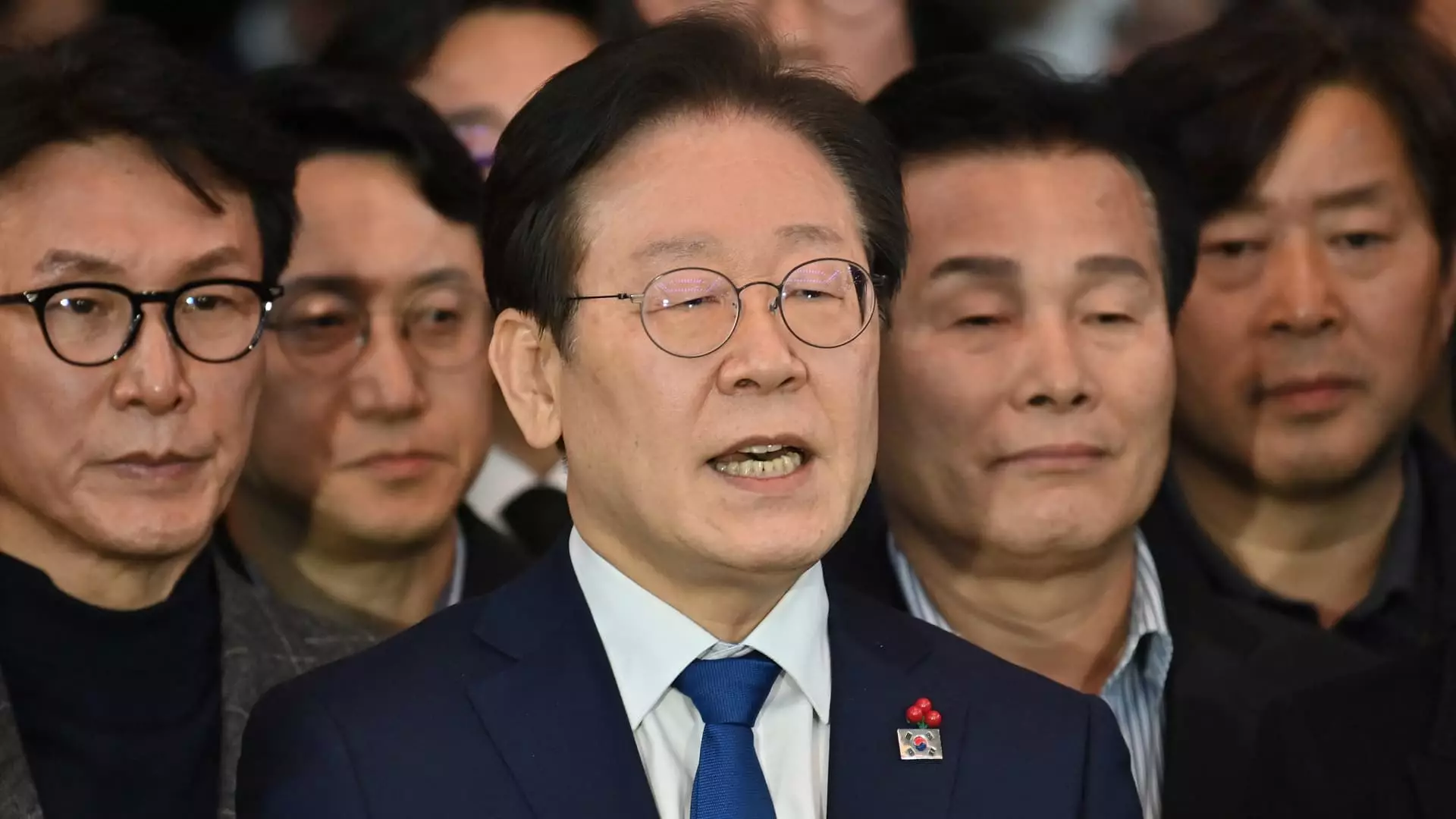In an era where economic nationalism and protectionist policies often dominate political discourse, South Korean presidential candidate Lee Jae-myung delivers a breath of fresh air by advocating for a re-evaluation of trade relations with the United States. Acknowledging the impending snap election following the impeachment of Yoon Suk Yeol, Lee underscores the urgency of recalibrating the timeline for negotiations over President Trump’s trade tariffs, a conversation crucial for South Korea’s economic future. It’s not just about getting a deal; it’s about crafting a mutually beneficial partnership that stands against unilateral impositions.
What strikes me as particularly meaningful is Lee’s practice of diplomacy as a dual advantage rather than a zero-sum game. His candid remarks that a one-sided benefit constitutes plunder reflect an understanding of a more humane, reciprocal approach to international relations, especially among allied nations. As an advocate of center-wing liberalism, I find this stance commendable and necessary, especially in light of a world that seems more inclined to stoke division than to soothe frayed ties.
Economy First: A Call for Action
Lee passionately contends that South Korea must prepare an extra budget to stimulate the economy, hinting at the reality that we live in a world where economic uncertainty appears to be the status quo. His proposal to establish a task force dedicated to tackling economic challenges is not only pragmatically sound but also displays a progressive vision that prioritizes immediate action over complacency. While his opponents continue to preach fiscal conservatism that harkens back to better times, Lee looks unblinkingly at the current economic malaise.
By emphasizing actionable measures, he brings to the table the need for innovation in economic policies rather than recycling outdated ideas that have proven ineffective. The realities of global markets and domestic pressures demand resilience, foresight, and a unifying approach, elements that Lee seeks to foster, and which resonate strongly with the needs of the average citizen who may be feeling the squeeze of economic downturn.
A New Paradigm for Diplomatic Relations
The impasse with North Korea has often prompted belligerent postures from past administrations, so Lee’s vision of pursuing peace through dialogue offers a refreshing pivot. For far too long, intense military rhetoric has overshadowed the potential for diplomacy and cooperation. Lee’s assertion that South Korea should maintain a robust defense while advocating for dialogue is a recognition that strength and pragmatism can coexist harmoniously.
His criticism of the previous administration’s handling of relations with North Korea is not just political opportunism; rather, it’s a principled stance on the futility of isolation. By encouraging communication rather than adding fuel to the fire of animosity, he aligns himself with a longer-term vision for stability that provides room for cooperation, which is a revolutionary stance in a region fraught with historical tensions.
Standing Strong in the Face of Opposition
Recent polling shows Lee leading with 45% support, with his main opponent, Kim Moon-soo, narrowing the gap. Yet, what stands out to me is Lee’s unwavering confidence in his base—assured that the electorate won’t gravitate toward candidates complicit in the political turmoil of the past. His reference to Yoon’s “insurrection,” tied to the martial law debacle, speaks to a broader desire for accountability that resonates particularly well with younger voters disillusioned by traditional politics.
In a rapidly shifting political landscape, Lee’s belief in justice and integrity sets him apart, while his readiness to embrace reform and diplomacy unveils a progressive agenda that stands to benefit South Korea collectively. His focus on a comprehensive economic strategy, coupled with a genuine intent to foster international cooperation, presents a vision of a more robust and cohesive South Korea—a nation capable of not only surviving but thriving on the global stage.
Lee Jae-myung embodies a shift from divisive politics to one of collaboration, manifesting a future where economic and diplomatic partnerships don’t just coexist but flourish in tandem. In a tumultuous world, such a perspective is not just refreshing—it is vital.

